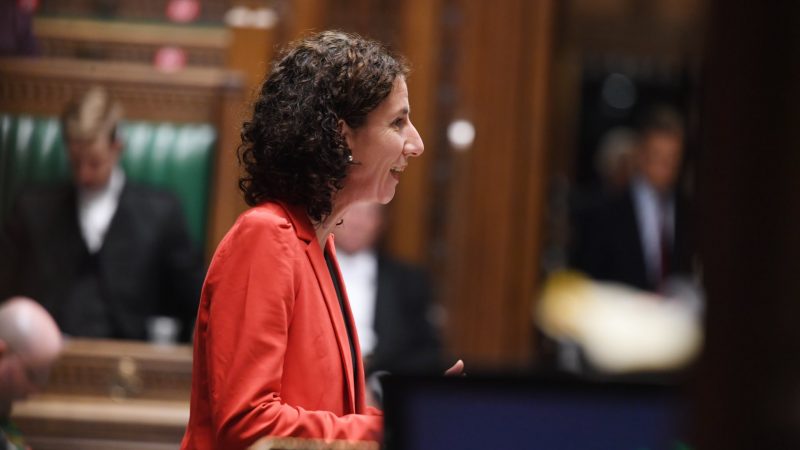
Labour has a steep hill to climb to regain the public’s confidence that it can be trusted to manage the economy. I get that. And Labour has to recover from a catastrophic electoral defeat – a defeat that took place under the leadership of the left.
So, given past failures, how does Labour rebuild confidence? The first requirement, in my view, is for Labour to listen to, and trust the public. Their opinion, and their anger at the state of the economy is justified. The public can see what you and I can see.
Over the last 30 to 40 years, politicians (widely perceived as ‘the elite’) have allowed a fundamental rebalancing to take place between capital and labour – to the massive advantage of the loosely defined 1%; and to the detriment of both low- and middle-income families. That much is clear to many voters, not least in ‘Red Wall’ seats.
Politicians around the world have allowed big corporations, banks and Silicon Valley ‘platforms’ to amass huge powers that undermine workers’ rights and their income security. Voters are living that precarious reality – and they are angry.
Over several decades, politicians privatised access to vital services like health, housing and education – raising the costs of these services (think dental and university fees, housing rents) while the life support systems that are our ‘social fabric’ were deliberately unravelled, our economic, social and environmental resilience diminished.
Most people can see that public assets (like school dinners) paid for by taxpayers have been privatised and turned over to free-marketeers for profiteering. At the same time, they watch in anger as private losses are socialised.
And the public understands (even if they’re not experts in monetary theory) that after the Great Financial Crisis the 1% were bailed out by monetary policy – thanks to the magic of something called QE. Fiscal policy – via austerity (think council cuts and stealth tax rises) – were used to shift the burden of fixing the crisis on to the 99%. A ruse that failed.
I welcome Anneliese Dodds’ statement that Labour would end the government’s excessive dependence on monetary policy. As she rightly notes, the Tory government’s failure to join monetary and fiscal policy at the hip, and instead to rely heavily on monetary policy alone, led to a rise in “inequality and concentrated economic gains in the hands of those who were already asset-rich, at the expense of those who rely on income from their labour”.
But Labour must do more. It must listen to the screeching U-turns made by big international institutions like the IMF and the OECD. Their leading economists have realised that the rise of authoritarianism in India, Brazil, Europe and the United States is doing intense harm to the global economy and is in no small measure down to economic policies they previously advocated. The OECD’s chief economist, Laurence Boone, now argues that countries should not embark on a recovery by raising taxes or cutting public spending.
That much is common sense: a Labour government should not, while the economy is at its weakest, contract the nation’s income further by raising taxes and cutting investment. (Exceptions should of course be made for taxing the rich who do not pay their share.)
The very best way to balance the budget, as Dodds argues in her Mais speech, is by long-term public and private investment that creates environmentally-friendly, skilled, well-paid, secure jobs. Jobs that will both tackle climate breakdown, provide income for individuals and families – and generate tax revenues for the Treasury.
The public may not have studied the economic concept of the ‘the multiplier’ but most understand from personal experience that jobs not only generate income for the employed, but also for shopkeepers and other firms. From the point of view of the public purse, decent, well-paid, secure employment generates tax revenues for the government to ‘balance the budget’.
Labour would do well to face the electorate with just one policy – to stimulate both public and private investment in the creation of full employment. Employment in climate-related, skilled, secure and well-paid jobs. Decent, well-rewarded jobs for the nation’s young Covid generation; for our low-paid and overstretched carers; for teachers, for mature, experienced workers and professionals; for those working in critical energy, transport and land use sectors; as well as jobs for those in the arts, and in the digital sphere.
If Labour placed full employment, backed by trade union rights, at the heart of all policy-making, the party would be responding to public demand for a rebalancing of economic power between capital and labour – much as Clement Attlee’s Labour responded to public demand in the election of 1945.




More from LabourList
Welfare vote: ‘Here are the failures it reveals – and three faint silver linings’
Welfare vote: Which Labour MPs voted against bill or backed new amendment?
‘Welfare reforms still mean a climate of fear. Changes are too little, too late’